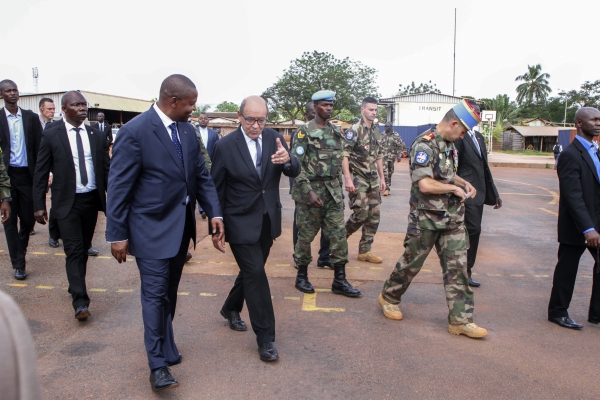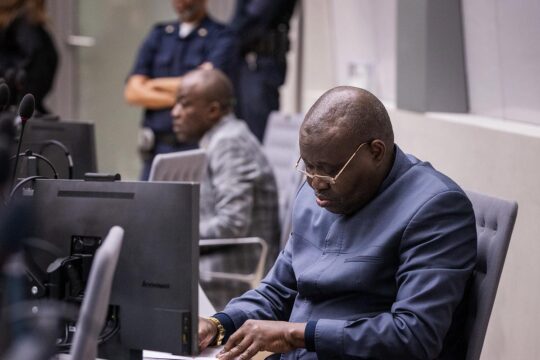Africa remained at the centre of transitional justice news this week. November 1 marked the departure of French forces from the Central African Republic, three years after the start of their mission to protect civilians. But the CAR is still far from stable. The transition remains bumpy and the security situation has worsened, both in the capital Bangui and in the rest of the country.
As JusticeInfo’s deputy editor for Africa Ephrem Rugiririza writes: “Even if some were accused of sexually abusing young Central Africans, the French soldiers were the only deterrent force against the armed groups that are currently spreading terror in the country. Since the Central African armed forces (FACA) are still not operational, it is now the UN peacekeepers alone that have the responsibility to protect Central Africans.”
The Central African people are the first to doubt the capacity of the UN force (MINUSCA), much criticized by civil society, to fulfil this mandate, all the more so since the most important parts of the transition – disarming the militia, setting up a functional national judiciary and a hybrid Special Court – remain to be tackled in a country that needs to be totally rebuilt.
The bad example of the Central African Republic illustrates the importance of both national and international transitional justice processes. The International Criminal Court (ICC) is still reeling from announcements by Burundi, Gambia and South Africa that they are withdrawing their membership of the Court. The Hague-based court fears that others could follow in the run-up to its Assembly of States Parties (members), which starts on November 16. But some African States, as well as numerous representatives of civil society, have come to the aid of the embattled institution, as noted by Human Rights Watch, saying that “the ICC has the potential to deliver justice to victims of the world’s worst crimes when national courts are unable or unwilling to prosecute. The ICC is not perfect and its reach needs to be expanded. But the ICC remains a crucial global court of last resort”.
On a different continent, Colombia remains a controversial example of transitional justice after its people narrowly rejected in a referendum a peace deal between the government and the main rebel movement FARC. In an interview with JusticeInfo, Colombian jurist Maria Teresa Garrido says she is still optimistic and thinks a renegotiated peace remains possible. And she defends the transitional justice mechanisms in the agreement, saying that “for the victims, truth is essential. The victims have therefore said they are ready to demand less punitive justice, lighter sentences in exchange for more truth telling, reparations and guarantees of non-repetition”.
Also important to note is the ambiguity of the humanitarian aid situation in Syria, which has been hijacked by the government with the tacit complicity of UN institutions. “Humanitarian aid is more than ever a military and political bargaining chip,” writes Frédéric Burnand of Swissinfo.
“It is unbelievable that two big powers involved in this conflict– the US and Russia – are unable to reach an agreement to respect and ensure respect of the basic principles of humanitarian law,” says Tawfik Chamaa, representative in Switzerland of the Union of Syrian Medical Aid Organizations (UOSSM), as quoted by Swissinfo. “That creates a terrible precedent. Syria is the cradle of civilization, but it is becoming the tomb.”







